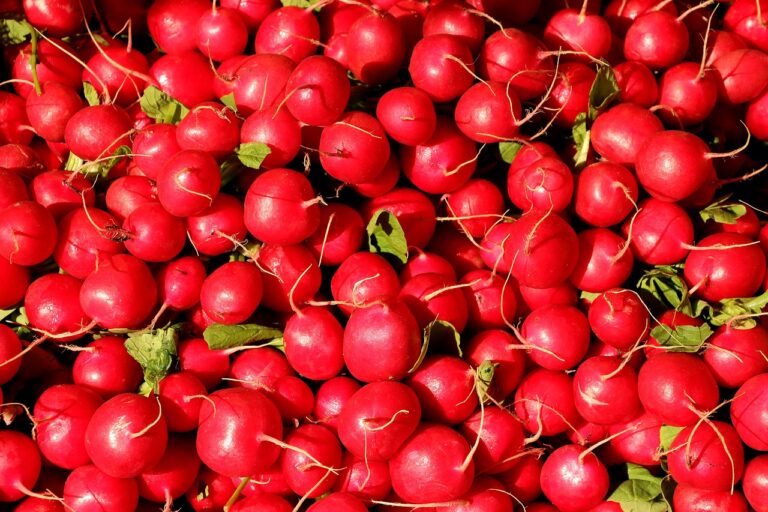Microbrewery Beer and Local Farmers Market Collaborations: Goldenexch99, Cricbet99 club.com, King567 login
goldenexch99, cricbet99 club.com, king567 login: As the craft beer industry continues to grow, microbreweries are looking for innovative ways to stand out in a crowded market. One strategy that is gaining popularity is collaborating with local farmers markets to source fresh ingredients for unique and flavorful beers. By forming partnerships with local growers, microbreweries are not only able to create distinctive brews but also support their communities and promote sustainability.
Microbreweries are known for their small-batch, handcrafted beers that often feature creative and experimental flavors. By working with local farmers markets, these breweries can access a wide variety of fresh produce, herbs, and other ingredients that are not typically found in traditional brewing supplies. This allows them to create one-of-a-kind beers that showcase the best of their region’s local bounty.
In addition to the creative possibilities, collaborating with farmers markets also offers microbreweries the opportunity to support small-scale farmers and promote sustainability. By purchasing ingredients locally, breweries can reduce their carbon footprint and help to strengthen their local food systems. This not only benefits the environment but also helps to foster a sense of community and connection between brewers and growers.
One of the key benefits of collaborating with local farmers markets is the ability to source high-quality, seasonal ingredients that can elevate the flavor profile of a beer. For example, a brewery may work with a nearby orchard to incorporate fresh, local apples into a seasonal cider or partner with a local herb farm to infuse a beer with unique, aromatic botanicals. By using fresh, local ingredients, microbreweries can create beers that are vibrant, flavorful, and truly reflective of their region.
In addition to the creative and flavor benefits, collaborating with local farmers markets can also help to expand a brewery’s customer base and attract new customers who are interested in supporting local businesses and sustainable practices. By highlighting their partnerships with local growers, breweries can differentiate themselves in a competitive market and appeal to consumers who are looking for unique, ethically sourced products.
Overall, the collaboration between microbreweries and local farmers markets is a win-win for both parties. Breweries gain access to fresh, high-quality ingredients that can inspire new and innovative beer creations, while farmers markets benefit from increased sales and visibility within their communities. By working together, these two sectors can create a more vibrant and sustainable local food and drink economy that benefits everyone involved.
Heading 1: The Benefits of Collaborating with Local Farmers Markets
One of the key advantages of working with farmers markets is the access to a wide range of fresh, seasonal ingredients that can inspire unique and flavorful beer creations. By sourcing ingredients locally, breweries can create beers that are not only delicious but also reflective of their region’s unique terroir.
Heading 2: Supporting Small-Scale Farmers and Promoting Sustainability
Collaborating with local farmers markets allows microbreweries to support small-scale growers and promote sustainable farming practices. By purchasing ingredients locally, breweries can reduce their carbon footprint and help to build resilient and sustainable food systems in their communities.
Heading 3: Creativity and Innovation in Brewing
By working with farmers markets, microbreweries can tap into a diverse array of fresh produce, herbs, and other ingredients that are not typically found in traditional brewing supplies. This opens up a world of creative possibilities and allows brewers to experiment with new flavors and brewing techniques.
Heading 4: Connecting with the Local Community
Collaborating with farmers markets can help microbreweries to connect with their local community and build relationships with customers who value local, ethically sourced products. By highlighting their partnerships with local growers, breweries can attract new customers and strengthen their ties to the community.
Heading 5: Standing Out in a Competitive Market
In a crowded craft beer market, it can be challenging for microbreweries to differentiate themselves from the competition. By collaborating with farmers markets and highlighting their use of fresh, local ingredients, breweries can set themselves apart and attract customers who are looking for unique, sustainable products.
FAQs:
Q: How can breweries find local farmers markets to collaborate with?
A: Breweries can start by reaching out to their local farmers markets or agricultural organizations to inquire about potential partnerships. Many farmers markets have programs in place to connect growers with businesses like breweries.
Q: What are some examples of beers that have been created through collaborations with farmers markets?
A: Some examples include apple ciders made with fresh, local apples, herb-infused beers featuring herbs from a nearby farm, and seasonal brews made with fruits and vegetables sourced from local growers.
Q: How can consumers support breweries that collaborate with farmers markets?
A: Consumers can support breweries that work with farmers markets by purchasing their products, attending events or tastings featuring these collaborations, and spreading the word about the benefits of supporting local, sustainable businesses.







